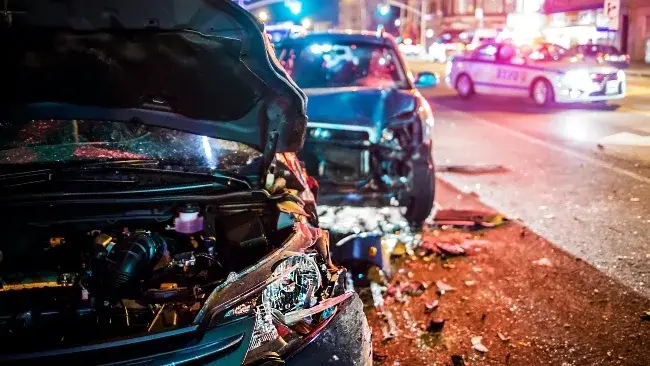2 min read
DUI Personal Injury FAQ: What You Need to Make Your Case
Aaron Ferguson Law Oct 23, 2024 8:00:00 AM

The laws and procedures for DUI-specific cases may differ from other personal injury cases. Getting hit by a drunk driver means that your claim must address various civil and criminal factors. It may seem easy to pursue a personal injury claim against a drunk driver (if the driver is at fault), but building your case still requires careful analysis, planning, and strategy.
Let’s examine what elements go into a DUI personal injury case, which Minnesota and Wisconsin laws apply in such a case, and what information is needed to improve the likelihood of a settlement.
Determining Negligence
Most personal injury claims rest on proving some form of negligence from the offending party, but DUI cases are slightly different. They rest on a legal concept of “negligence per se,” or “negligence in itself.” In a DUI case, this means that since the drunk driver was already breaking the law by driving impaired, you likely won’t need to prove further negligence for their actions.
You would only need to prove that the driver violated the law and that you suffered injury because of it. Driving with a blood alcohol concentration (BAC) level above the state’s legal limit is proof of negligence per se. Some common ways to confirm that the driver was illegally impaired include:
- An arrest or police report showing the driver was charged with drunk driving
- Results from a failed breathalyzer or other chemical test
However, proving negligence is more difficult if the driver’s BAC level was under the state’s legal limit. In this case, you would need evidence of clear impairment. Some common ways to prove impairment within legal BAC levels include:
- Traffic and video surveillance footage that shows erratic driving
- Statements from eyewitnesses who saw the driver’s behavior
Claims Against Alcohol Vendors
A DUI personal injury claim doesn’t just extend to the offending driver. Establishments that sold or provided alcohol to the intoxicated driver could also suffer damages. This is due to dram shop laws applicable to Minnesota and Wisconsin establishments.
Each state approaches dram shop claims differently:
- In Minnesota, liquor vendors and private homeowners are liable if they sell or provide alcohol to an obviously intoxicated person (or any person under the age of 21) who then causes injuries to a third party.
- In Wisconsin, vendors and private homeowners are NOT held liable, unless the alcohol is provided through force or deception, or sold to someone under the age of 21 without a convincing fake ID. Wisconsin also requires proof that alcohol was a “substantial factor” in the accident.
Proving liability in a dram shop law claim could be challenging, however. Establishments like bars and liquor stores might have records for sales to intoxicated persons, but you’d need to prove that the vendor knew that the offending driver was intoxicated. Witness statements and video footage could help.
Types of Damages in a DUI Case
In Minnesota, victims of DUI accidents can claim three types of damages: economic, non-economic, and punitive. Each type addresses specific pain and suffering points during accident recovery:
- Economic damages are financial losses after an injury or accident and are the primary costs in a personal injury case. These include medical expenses, lost wages, and property damage costs.
- Non-economic damages are non-monetary losses that a victim experiences, and are often more difficult to evaluate because they are subjective and intangible. These include pain and suffering, loss of enjoyment of life, emotional distress, and reputational damage.
- Punitive damages seek to punish the drunk driver (or liable vendor) and prevent the behavior from occurring again. These additional monetary amounts are mainly sought in severe cases, when the offending party was particularly egregious or malicious.
Navigating a DUI personal injury claim requires patience, precision, and preparation. Your personal injury attorney should walk through all applicable laws, discuss how they’ll seek to prove negligence and help you seek fair compensation. If you’ve recently been in an accident by a drunk driver, we’re here to help.
Get a Free Case Consultation

◄ Back to Blog Listing Page
